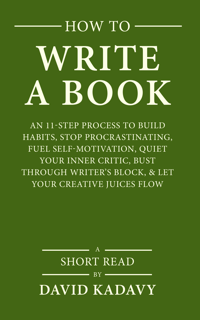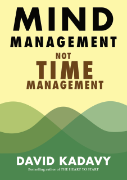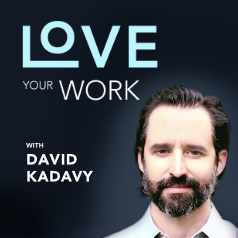Subscribe to blog updates via email »
End the attention economy. STEEM’s Ned Scott on Steemit & cryptocurrency-driven social media. – Love Your Work, Episode 71
 Ned Scott (@certainassets, Steemit: @ned) is trying to reinvent the way content gets made. He wants you to get paid in the process. Ned is the co-founder of a cryptocurrency called STEEM, and he’s CEO of a website that runs on STEEM, called Steemit.
Ned Scott (@certainassets, Steemit: @ned) is trying to reinvent the way content gets made. He wants you to get paid in the process. Ned is the co-founder of a cryptocurrency called STEEM, and he’s CEO of a website that runs on STEEM, called Steemit.
Basically all of the actions that you would normally take on a site such as Reddit – writing posts, upvoting, or commenting, mines the STEEM cryptocurrency. You can then cash in that cryptocurrency for the currency of your choice.
The attention economy and digital distraction
You’ve heard me talk about the economics of digital distraction on the podcast before. Hooked author Nir Eyal and I talked about it on episode 21. Companies such as Facebook steal your attention, because the current models of supporting content creation incentivize them to do so.

WANT TO WRITE A BOOK?
Download your FREE copy of How to Write a Book »
(for a limited time)
For example, because the bulk of Facebook’s revenue is from ads, they want you to spend as much time on your news feed as possible. This then incentivizes content creators to create the most attention-grabbing content possible.
They’ll use tactics such as inciting rage – even if it means ruining an innocent person’s life. We saw this tactic backfire when Gawker outed a closeted gay executive. Or, they’ll just plain lie – which is something we’re seeing with the current “fake news” crisis.
The incentives of the attention economy
By the way, I discussed some of these incentives with Ryan Holiday on episode 31. Ryan wrote a great book on the subject with Trust Me, I’m Lying.
Will STEEM incentivize different behavior? Well, that remains to be seen. Many journalists are currently paid by the page view. I have journalist friends who have worked at a respectable newspaper, and their performance was measured by the page views on their stories.
Think about that for a second. They weren’t allowed to own stocks because it would be considered a conflict of interest in case they had to write about one of those companies, but somehow being rewarded by the page view is not a conflict of interest?
So if journalists are no longer paid by the page view, but instead by their work being upvoted – the incentives will shift somehow. It’s hard to say whether it would be good or bad, but they will shift.
Spending attention vs. spending STEEM
My theory is that we spend our attention far differently from how we spend our money. We’re wired not to see the fruit in the bush, but rather the tiger behind the fruit in the bush.
With STEEM we aren’t spending our money, per-se, but there appears to be a different psychology to upvoting on Steemit. I’m sure those incentives bring along other quirks. From what I’ve seen, the most popular content – hence the content that has earned the most money – on Steemit is about STEEM. Content like this podcast, I guess.
Other than that, like I say, it remains to be seen. To wrap your head around it, I’d recommend signing up at Steemit.com, and looking around. By the way, my Steemit username is kadavy, so let’s connect there.
Can you earn money on Steemit?
I’ve been a STEEM user (@kadavy), or rather I’ve used the website Steemit (yes, it’s a little confusing at first), for several months now. I’ve converted some of my STEEM to Bitcoin, just to run a test. So far, I’ve earned spendable money for using Steemit. And, as I record this, the total value of all of the STEEM that is out there is at over 50 million dollars.
Where does that money come from? How does STEEM work? Why might it work in the long run? and why might it not work? Ned and I will talk about all of that and more in this conversation.
Remember, none of this is investment advice, just an exploration of a potential new way to incentivize content creation.
Seth Godin interview coming soon!
A very revealing Seth Godin interview is coming soon. Make sure you’re subscribed, so you don’t miss the episode.
Sponsors
Freshbooks: When you're billing your clients, the last thing you want to waste your time and mental energy on is creating invoices. FreshBooks customers get paid an average of 4 days faster. Claim your free 30-day trial at http://freshbooks.com/loveyourwork. (Enter "Love Your Work" in the "How Did You Hear About Us?" section.)
Subscribe to Love Your Work
Listen to the Ned Scott of Steemit interview
- Listen in iTunes >>
- Download as an MP3 by right-clicking here and choosing “save as.”
- RSS feed for Love Your Work



